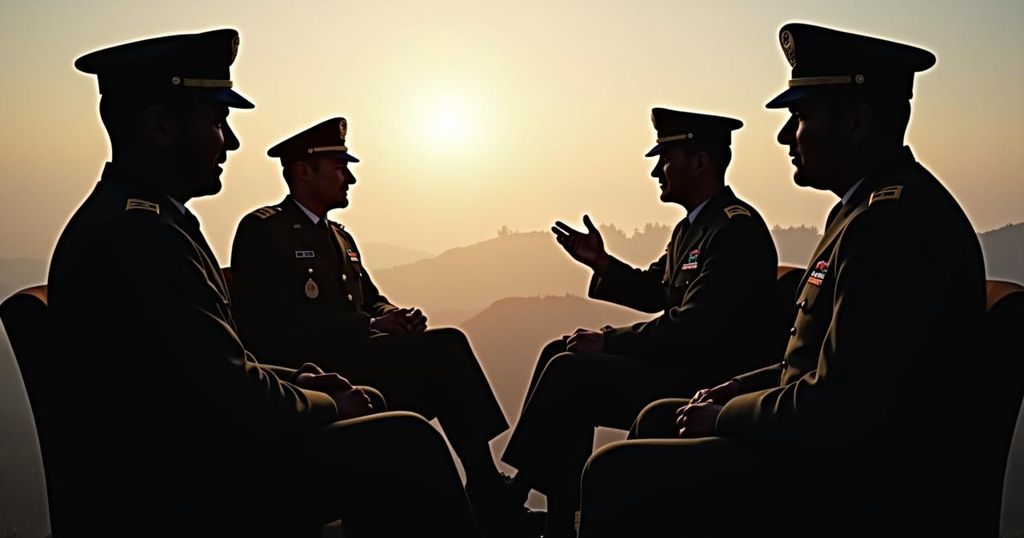Bilateral Ties Strengthened: Bukele’s Visit to Argentina
President Nayib Bukele’s recent visit to Argentina resulted in pivotal agreements to strengthen ties in security, energy, and economic sectors. The visit included significant discussions with Argentine President Javier Milei and culminated in the signing of several bilateral cooperation pacts, marked by a strong ideological alignment between the two leaders on key issues.
The official visit of President Nayib Bukele of El Salvador to Argentina culminated with significant agreements aimed at fortifying bilateral cooperation. Welcomed by Argentine President Javier Milei at the Casa Rosada, the visit included discussions on essential sectors such as security, energy, and the economy, resulting in the signing of a “joint declaration” covering various domains, including culture, aviation, nuclear energy, and sports. Furthermore, the Presidents convened a high-level business forum designed to showcase strategic opportunities for investments, particularly in technology, food and beverage manufacturing, and an upcoming Argentine trade mission to El Salvador focused on the automotive sector set for late 2024. President Bukele and President Milei share a mutual ideology characterized by an “anti-caste” narrative, along with collective criticisms directed at human rights organizations, which they argue have misrepresented their respective missions over time. This ideological alignment was recently echoed during the 79th United Nations General Assembly, where both presidents criticized UN initiatives, labeling them as influenced by a “socialist agenda.” Milei has openly expressed admiration for Bukele’s stringent security policies, which have emphasized the restriction of liberties for those associated with criminal gangs. Bukele’s approach, particularly the construction of a substantial maximum-security prison for incarcerated criminals, has inspired similar measures in Argentina, as the Argentine government seeks to eliminate perceived impunity. Additionally, during Bukele’s visit to Argentina, he met with Foreign Minister Diana Mondino and participated in dialogues with members of the Senate, including President Victoria Villaruel. Discussions with Villaruel included El Salvador’s implementation of Bitcoin as an official currency and the establishment of a regulatory framework for cryptocurrencies. Bukele underscored successful strategies that have drastically reduced crime rates in El Salvador, stating, “We started out being literally the most dangerous country in the world… The homicide rate was 103 per 100 inhabitants.” Among the primary agreements concluded during this visit are a cultural cooperation pact to enhance cultural exchanges, an intent declaration for a joint airport project, and a memorandum for collaboration in the nuclear energy sector. Furthermore, cooperation agreements in sports and water management were also ratified, demonstrating a comprehensive approach toward enhanced bilateral relations between Argentina and El Salvador.
The meeting between Presidents Nayib Bukele and Javier Milei marks a pivotal moment in the diplomatic relationship between El Salvador and Argentina. Bukele’s visit emphasizes a mutual commitment to collaborate on significant national issues such as security, economic development, and cultural exchange. With a backdrop of shared ideological principles, particularly concerning national security and economic resilience, this visit aims at fostering regional cooperation and addressing pressing challenges in both nations, including crime reduction and disaster response measures.
In conclusion, President Bukele’s successful visit to Argentina has laid the foundation for a closer alliance between El Salvador and Argentina. The agreements signed in various sectors signal a shared commitment to cooperative strategies that address common challenges, particularly in security and economic development. The alignment of ideologies between Bukele and Milei indicates a potential for enhanced collaboration on both national and regional levels, promoting stability and growth in the region.
Original Source: www.agenzianova.com




Post Comment